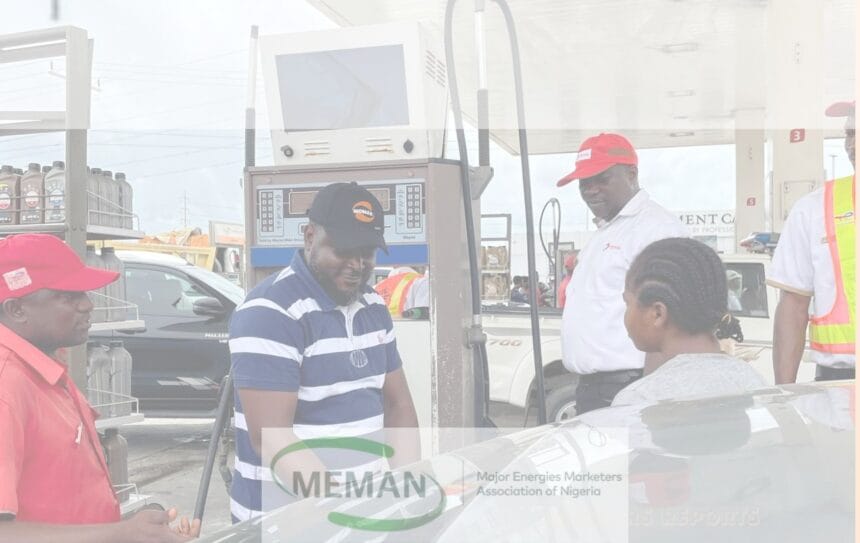Oredola Adeola
The Major Energy Marketers Association of Nigeria (MEMAN) has warned against the adverse effects of the prevalent “dollarisation” practice in fee collections by government entities, citing concerns over exchange rate volatility leading to soaring petroleum product prices.
The Executive Secretary of the Association, Clement Isong, made this observation at a media forum on Thursday.
Speaking about the harsh economic impact of dollarization of transactions within the petroleum product supply chain, by the NIMASA and the Nigeria Port Authority (NPA), Isong recalled the promise of President Bola Tinubu that the government will intervene if and when necessary.
Isong emphasised that the market and consumers are vulnerable to government policies that permit continuous charges in dollars by NPA and NIMASA.
According to him, the shift to dollarized product shipping and loading, combined with exchange rate fluctuations and inflation, has contributed to the rise in petrol prices.
He said, “Although marketers receive products from Nigerian National Petroleum Company Limited, NNPCL Trading, ship-to-ship products offload is transacted in dollars all of which pushes up the cost of the pump price.”
MEMAN’s analysis revealed that following the removal of petrol subsidies in July 2023, charges by NPA/NIMASA increased from N19.39k to N47.73 per liter due to the exchange rate rising from N650 to N1600 per US dollar.
Isong suggested that converting government agency charges from dollars to Naira could lead to a significant reduction in pump prices.
He further emphasised that though marketers receive products from Nigerian National Petroleum Company Limited, NNPCL Trading, ship-to-ship products offload is transacted in dollars all of which pushes up the cost of the pump price.
“We are presently concerned about sustainability, efficiencies, and affordability of energy for Nigerians, and we are encouraging the shift to energy transition specifically into gas space.” the ES said.
Isong complained that the complexities of the forex market uncertainty have stopped members from embarking on the importation of Premium Motor Spirit, PMS, otherwise known as petrol.
He said that it is not easy to put together a correct mathematical calculation of the product’s landing cost as to further determine the appropriate pump price.
He said with the unbearable rising cost, the Association’s ongoing advocacy is towards leveraging gas as an alternative source of energy.
Isong advised depot operators and filing stations to consider moving to use Compressed Natural Gas and other renewable energy sources like solar in other to break even and operate efficiently.
Clarifying the issues of return of subsidy, Isong, said the industry is witnessing consistent intervention initiatives by the government which perhaps the public may have misconstrued as subsidy payment.
He said President Tinubu, in July 2023 promised that the administration will continue monitoring the effects of the exchange rate and inflation on gasoline prices and when necessary, they will intervene.
“We have seen those interventions at different times, and it provides a level of stability, but our advocacy is to encourage a paradigm shift to reduce operating costs. Trucks are encouraged to move from diesel to CNG, depots and retail outlets to move from diesel to CNG and/or solar energy.” Isong explained.
Speaking on the transition shift to gas, Mr. Femi Fanoiki, a consultant on Liquified Petroleum Gas, LPG, said efforts are currently moving towards driving LPG application in both the industrial and automotive services.
Fanoiki, explained that interventions by the government are encouraging investment in that space but said more infrastructure deployment will further boost the adoption process.
Speaking on the advantages of Compressed Natural Gas, CNG, Adelanke Dayo-Adepoju, Gas and Renewable Energies Specialist at MEMAN analysed the benefits of shifting focus on CNG as an alternative to petrol and diesel.
She said concerted efforts have been made to convert about 1 million vehicles to run on the fuel by 2027 and the establishment of over 1,000 conversation workshops across the country.




